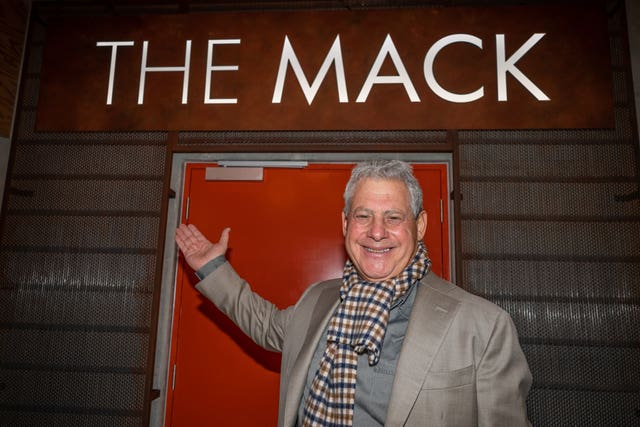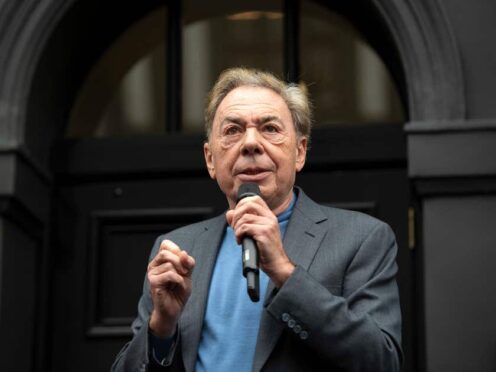Lord Andrew Lloyd Webber has said his hit musical The Phantom Of The Opera built a “rapport” with the audience that he could not “possibly have foreseen”.
Speaking on a special BBC Radio 2 show celebrating 35 years of his popular West End musical, the theatre boss also reflected on the show over the years and the difficulties it, and the rest of the industry, faced during the pandemic.
This comes as a string of theatre shows across the country have had to close in recent weeks due to “Covid-related absences”, which Lord Lloyd-Webber previously described as a “heartbreaking” situation.
Tune in at 1pm today on @BBCRadio2 to listen to a two-hour documentary hosted by @TheRealLukevans celebrating 35 years of @PhantomOpera, featuring an interview with Andrew himself. – #TeamALW
Listen live here: https://t.co/xpIpEJw1im https://t.co/6u5CStl3sR
— Andrew Lloyd Webber (@OfficialALW) December 26, 2021
Lord Lloyd-Webber said: “It found a rapport with the audience that I couldn’t possibly have foreseen.
“I remember very early on in the run that I went to a charity dinner organised by Elton John and I found myself seated among a whole load of huge supermodels and they’d all been to see Phantom, all of them, and they were all wanting to ask me questions about it.
“And I said, ‘Well, what is it that you relate to in it?’
“And I’m not going to say who it was, but she said to me, ‘The thing is, all of us around the table, you may think you’re with the most beautiful girls in the world, but the thing is all of us have got something about ourselves that we’d like to change’.”
The theatre impresario also described the difficulties the show, which plays at the Her Majesty’s Theatre in London, and the whole industry, has faced due to coronavirus restrictions closing theatres for over 18 months.
He added: “I found myself really pushing government on all levels, exceptionally unsuccessfully as it happened.
“But, in the end, it did lead to the pilots that did prove that we could open theatres properly and safely.”
The 73-year-old has been very vocal throughout the pandemic on the theatre industry requiring greater government support.
Earlier in the year, he joined others in the entertainment industry in launching legal action to force the Government to hand over the results from its coronavirus pilot events scheme which ran test events at sporting, music and arts venues to assess the safety of large gatherings during the pandemic.

The producer of Phantom of the Opera, Sir Cameron Mackintosh, added: “Covid, it was something that never occurred to me could ever happen.
“I’ve been working now for over 50 years in the theatre and historically the theatre only ever shut for a few weeks in the Second World War, let alone close shut for over 18 months.
“I run my office and my shows much more like family than I do as an industry and therefore having people not have jobs and a lot of them not getting any support from the Government because they were self employed and fell out of that safety net, it has been a huge strainer.”
During the special radio programme, Lord Lloyd-Webber and Sir Cameron reflected on how they first created the show, basing it on the original book by French author Gaston Leroux, which was published in 1910, and from the three film adaptations of the novel.
Lord Lloyd-Webber said: “I basically took elements from the book, and quite a few elements from the book, but I basically wrote my own tale about somebody who was writing and composing music that was out of its time.
“And although the setting was 19th century opera, what he was writing was music that couldn’t have be written in the 19th century.
“So I had this idea that what the Phantom would always be writing would be in the whole tone scale.”
